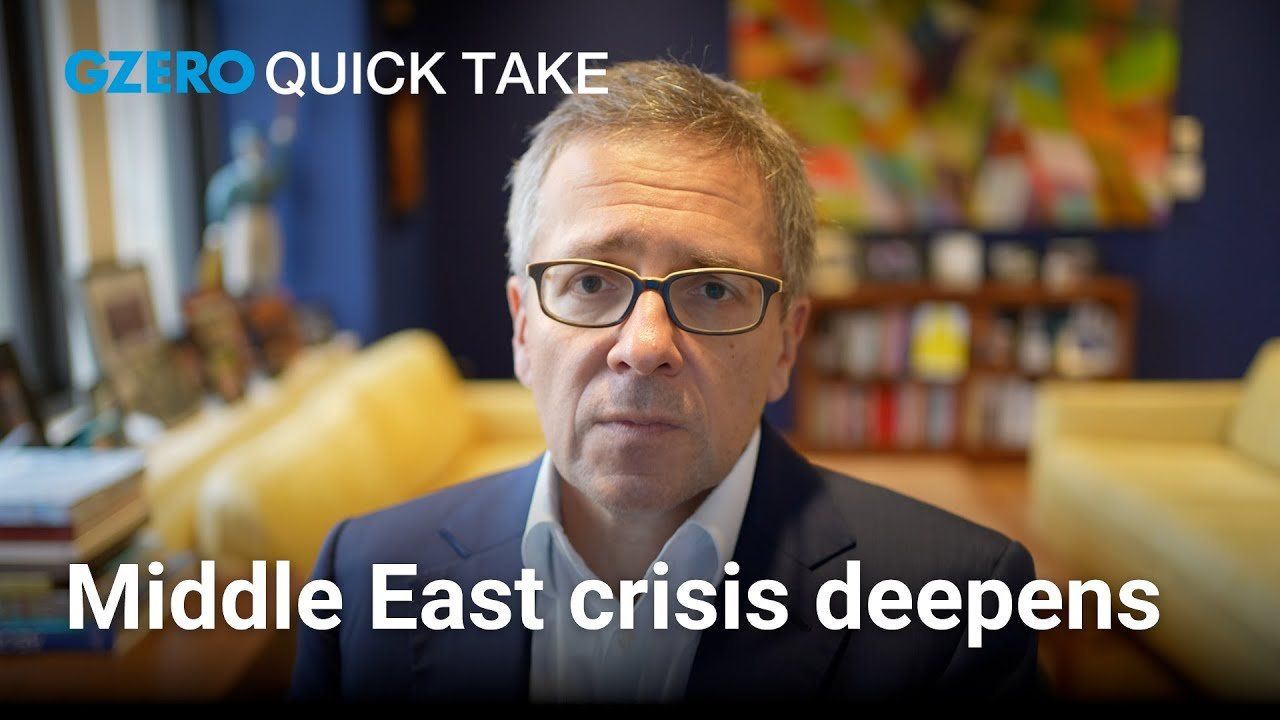
Ian Bremmer's Quick Take: It is, of course, an expansion of the war in the Middle East. Israeli troops and tanks now inside Gaza. The ground invasion, the second phase, as they've said, is well underway. Netanyahu, the prime minister of Israel, his advisor saying that payback has begun.
It is, of course, retribution for Hamas terrorist attacks, killing 1400 Israelis, mostly civilians, on October 7th. And since then, the number keeps going up. Over 250, it looks like total hostages having been taken and still mostly being held by Hamas in Gaza. This is a horrible tragedy on every count and the deaths that we will see, both the ability of the Israeli Defense Forces to take out Hamas military leadership and also the Palestinian civilians who are caught up in this fight.
Those numbers, those death numbers are going to go way, way up over the coming weeks. And I now believe we can no longer contain this war in Gaza. That was perhaps mostly possible in the past couple of weeks. It is so no longer, I think, the level of radicalization and violence that you will see on the West Bank from the Palestinians and in return from the IDF and the settlers, also from Hezbollah in the north and from Iranian proxies like the Houthis in Yemen and elsewhere, Iraq, Syria. That is going to be a reality in very short order.
And the United States will be involved in that war. In that regard, very different from the Russian invasion of Ukraine, which almost two years in now, and a massive amount of military support and expense from the United States and allies to support the Ukrainians. But no fighting, no direct fighting of American soldiers. Already, we have over 20 US servicemen and women that have been casualties of Shia-Iranian proxy strikes in the region. Those numbers expected to go way, way up. Also, anti-Semitism attacks across the region. Terrorism against the United States in the region and more broadly. I expect that we're going to see so much more of that in the coming weeks and months. And that means that this is not just Israel's war against Hamas. It is also a US war in the Middle East.
And the Americans will resist saying that. But increasingly that will be a reality. And in that regard, I do think that Biden has some vulnerabilities here in 2024. Trump is going to say no new war started under him. And now you've got two wars, Russia invading Ukraine and now you've got this Middle East crisis under Biden. And most Americans, even though they support Israel, though certainly not all, and a majority of Gen Z in the US does not, but a majority overall do. A majority in the US does not want to be involved in a new war in the Middle East, and that I think especially a war the Americans have sort of like found themselves engaged in, as opposed to, actively said, we're fighting and here's why. That I think, is going to go over badly for Biden in 2024.
Still a very, very close race, of course, and you see that. But for the near term, we're focused on the impact in the region, the reality that relations in the Gulf for Israel have been, at best, frozen for the foreseeable future and at worst degraded substantially. Turkey in particular, you saw President Erdogan using the 100th Republic Day as an opportunity to bring out massive numbers of supporters for Palestine. And those were the statements he was making, referred to Hamas as a liberation movement, refused to condemn them, condemned Israel, and the Israelis withdrew their diplomats. We're going to see a lot a lot more of that kind of behavior going forward as well. I wish we had good news here. War in the Middle East rarely brings it, and I fear that escalation is about to get much, much worse.
That's it for me. And I'll talk to you all real soon.
- As crisis deepens in Israel-Hamas conflict, cracks emerge for Biden and Trudeau ›
- Is Biden's embrace of Israel a political liability for him? ›
- Israel-Hamas War: Can the US count on its Arab allies? ›
- Podcast: What's the US role in the Israel-Hamas war? Views from Sen. Chris Murphy & Rep. Mike Waltz ›
- America's tightrope walk with the Israel-Hamas war ›
- ›
- Israel, Hamas, and Hezbollah: Fears of escalation grow - GZERO Media ›